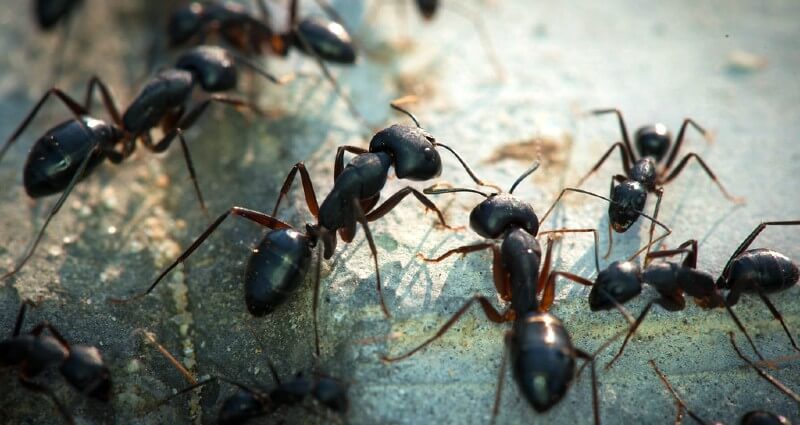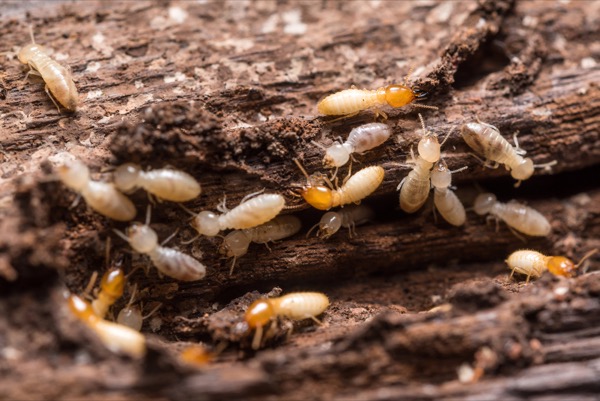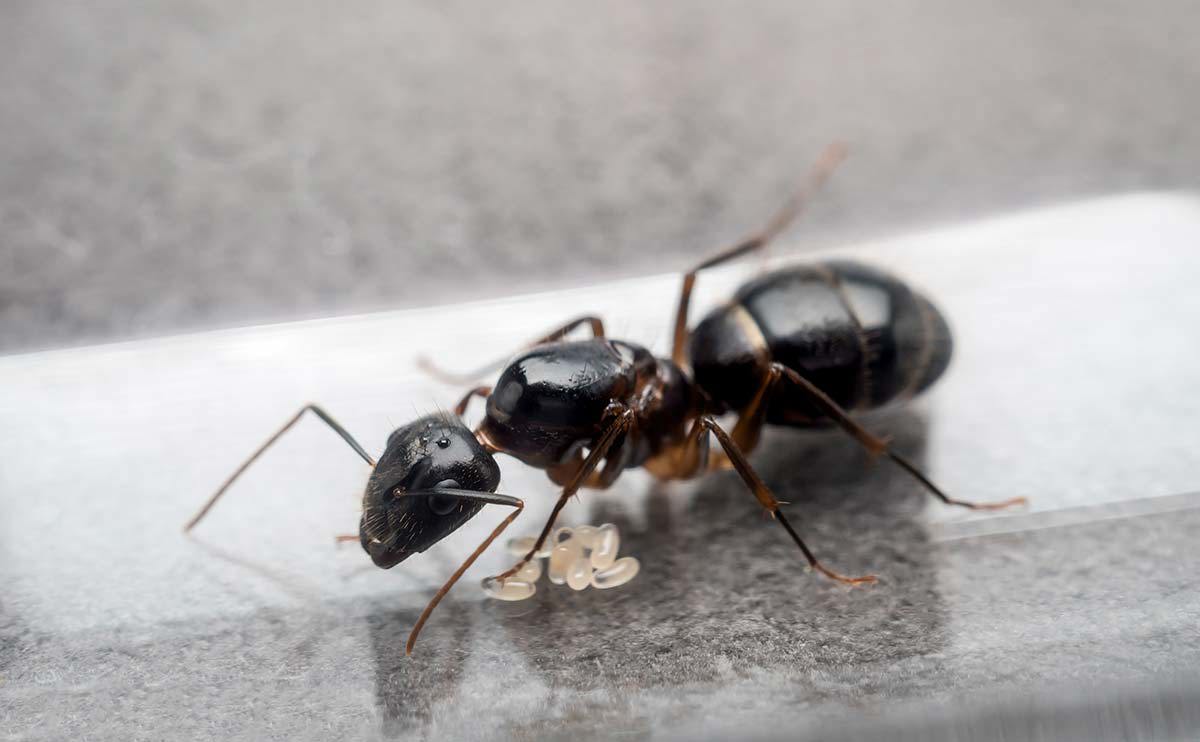Expert Ant Control Services: Customized Treatments for Long Lasting Results
Expert Ant Control Services: Customized Treatments for Long Lasting Results
Blog Article
Environmental Effect of Insect Control: Balancing Effectiveness With Sustainability
The environmental influence of pest control is a critical concern that needs a fragile equilibrium in between accomplishing performance in managing insects and making certain sustainability of our ecosystems. From the use of dangerous chemicals that permeate right into our dirt and water to the unintended repercussions on non-target types, the effects of standard insect control techniques are far-ranging.
Harmful Chemicals in Insect Control
The usage of dangerous chemicals in pest control poses significant environmental and health risks that call for mindful factor to consider and reduction strategies. Pesticides, herbicides, and pesticides are typically used to eliminate bugs, however their widespread application can result in unintentional consequences. These chemicals can contaminate soil, water sources, and the air, influencing not just the targeted bugs however additionally valuable pests, wildlife, and humans.

To resolve these risks, integrated pest management (IPM) techniques are being promoted as a more sustainable option. IPM includes a combination of methods such as biological control, habitat manipulation, and the targeted use of pesticides as a last option (ant control stalling nc). By embracing an all natural strategy to pest control, we can lessen the environmental and health influences linked with dangerous chemicals while properly handling pest populations
Effect On Non-Target Types
Thinking about the unintended repercussions of insect control methods, the influence on non-target types is an important aspect that requires complete assessment. While pest control actions aim to target details pests, various other organisms in the environment might be inadvertently influenced. Non-target varieties, including useful pests, birds, mammals, and even plants, can endure indirect or straight harm from pesticide applications or organic control methods.
Chemicals can have sub-lethal or deadly results on non-target varieties. For example, pesticides developed to battle a particular bug pest may damage pollinators like bees or all-natural predators such as ladybugs. Additionally, chemical deposits can gather in the environment, impacting non-target microorganisms gradually. Similarly, biological control representatives, otherwise species-specific, can pose risks to unintended targets, interrupting the ecological balance.
To minimize the influence on non-target varieties, incorporated parasite monitoring (IPM) techniques that emphasize a holistic approach to pest control are recommended. These methods prioritize the usage of environmentally friendly techniques, minimizing injury to useful organisms while properly taking care of pest populaces. Carrying out complete danger evaluations and monitoring the outcomes of parasite control initiatives are necessary action in securing non-target species and promoting general community health.
Soil and Water Contamination
Unexpected environmental repercussions of parasite control approaches prolong beyond affecting non-target varieties, with considerable effects for soil and water contamination. Chemicals, herbicides, and chemical fertilizers used in bug control can leach right into the dirt and infect groundwater, posing a danger to both water and earthbound ecological communities. Dirt contamination can interfere with the balance of microorganisms necessary for vitamins and mineral cycling and plant development, leading to lowered dirt fertility and performance. Moreover, these chemicals can persist in the atmosphere for extensive periods, accumulating in the soil and possibly entering the food cycle.
Water contamination is an additional critical issue connected with bug control practices. Overflow from farming areas treated with pesticides can lug these chemicals right into nearby water bodies, influencing aquatic microorganisms and water top quality. Pollutants in water resources can have far-reaching consequences, affecting not just aquatic life however additionally human health with the consumption of contaminated water or aquatic organisms. To minimize dirt and water contamination from insect control activities, incorporated pest monitoring methods that focus on sustainability and lessen chemical inputs are vital.
Air Air Pollution From Pesticide Usage
Exposure to air-borne chemicals during farming applications postures a considerable issue for air contamination control measures. In addition, chemical drift, where pesticides are carried by the wind to unexpected areas, can lead to the contamination of close-by ecosystems and water bodies.

Methods for Lasting Pest Control
In the realm of agricultural techniques, executing lasting parasite control strategies is vital for keeping ecological balance and protecting plant returns. Lasting parasite control emphasizes using ecologically pleasant approaches to manage pest populations successfully while lessening injury to non-target microorganisms and ecological communities. Integrated Pest Management (IPM) is a widely adopted method that integrates biological, social, physical, and chemical control techniques to attain lasting bug administration options.
One trick approach in lasting pest control is advertising biodiversity within agroecosystems. By boosting all-natural opponents of insects, such as predators and parasitoids, farmers can minimize the need for synthetic pesticides. Crop turning and diversity are likewise efficient methods to interrupt pest life cycles and create much less desirable problems for insects to flourish. Furthermore, utilizing pest-resistant crop selections and utilizing techniques like catch chopping can help in reducing insect pressure without counting greatly on chemical interventions. Inevitably, by incorporating these sustainable insect control techniques, farmers can attain an equilibrium between pest monitoring efficiency and environmental stewardship.
Final Thought
In final thought, the ecological impact of insect control approaches must be thoroughly pop over to this web-site taken into consideration to balance effectiveness with sustainability. Damaging chemicals made use of in bug control can cause soil and water contamination, air contamination, and injury non-target varieties - ant control. It is critical to execute lasting pest control methods to decrease these negative results on the environment and advertise a healthier ecosystem for future generations
By embracing a holistic strategy to pest control, we can reduce the ecological and health impacts linked with damaging chemicals while successfully managing pest populations.

To reduce the air pollution created by chemical usage, it is essential to take on integrated bug management strategies that focus on the usage of non-chemical pest control techniques, such as plant rotation, natural killers, and resistant crop ranges. Lasting pest control highlights the usage of environmentally pleasant approaches to take care of insect populaces properly while minimizing harm to non-target organisms and communities. Integrated Pest Monitoring (IPM) is a commonly embraced method that integrates organic, social, physical, and chemical control methods to attain long-term pest management options.
Report this page